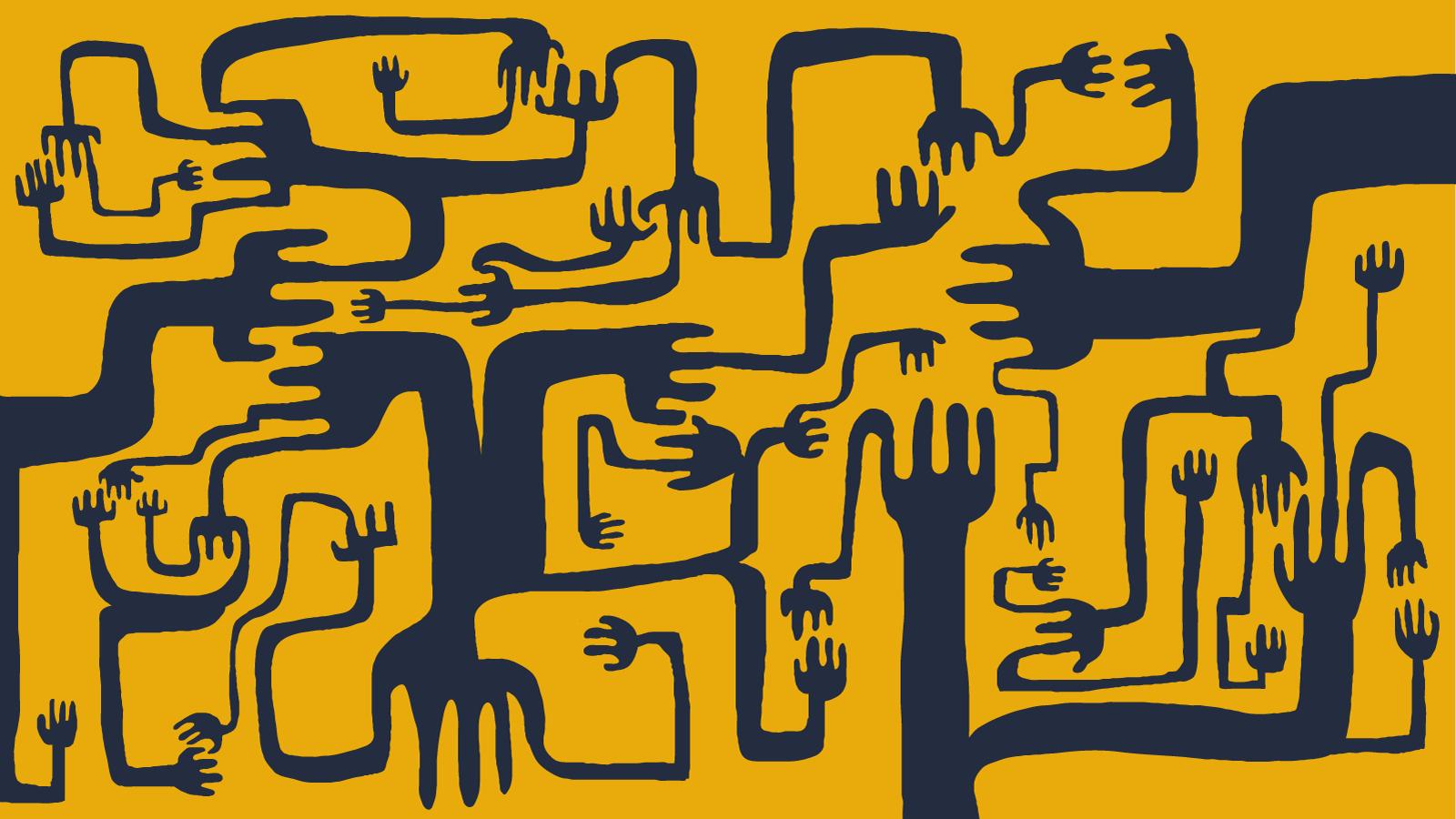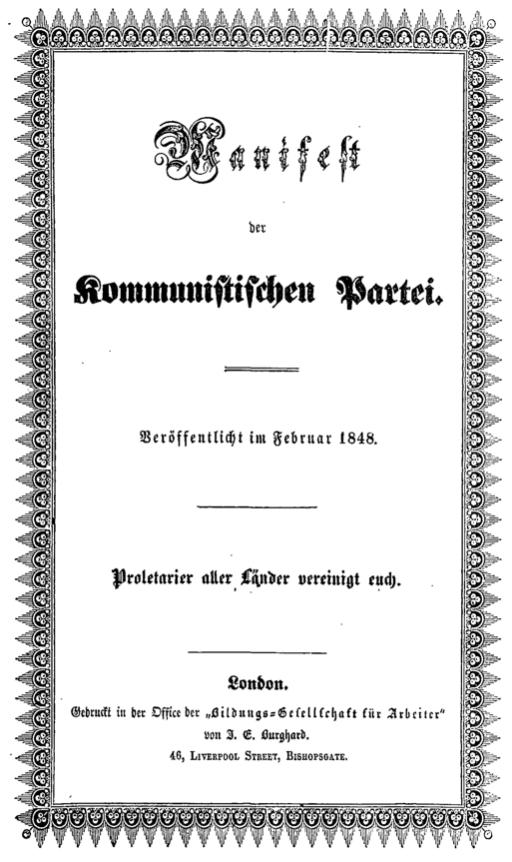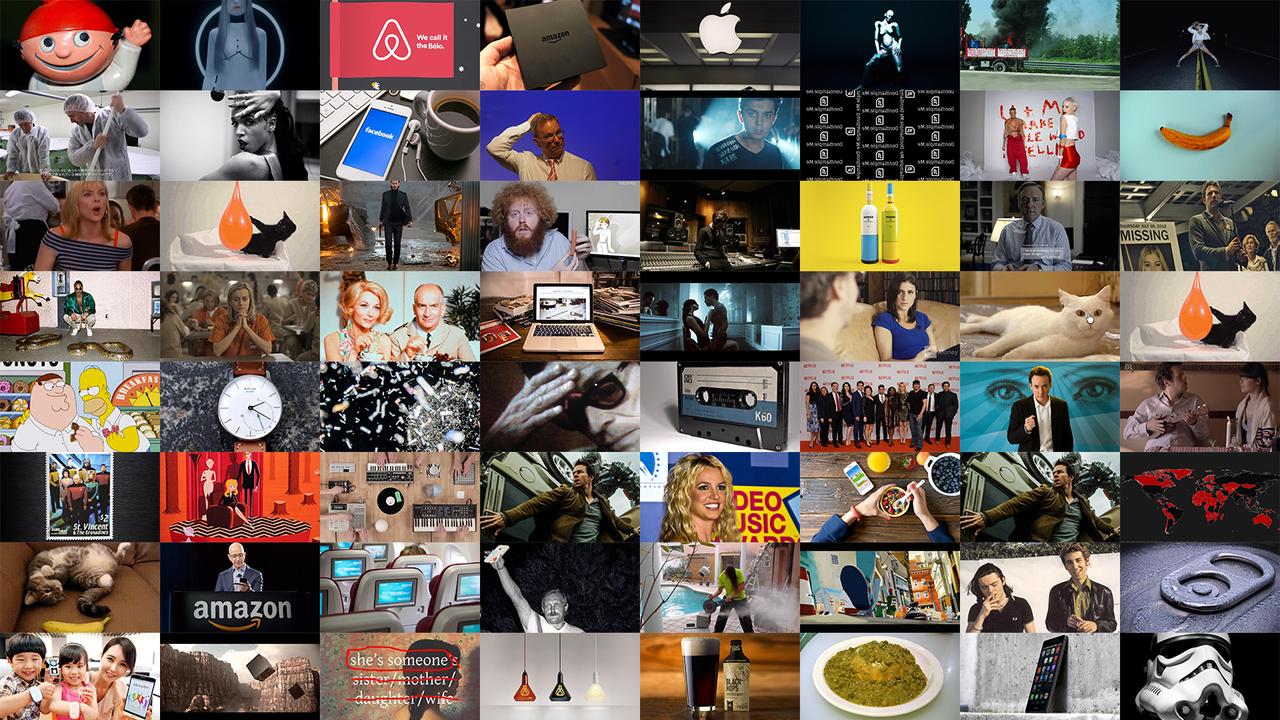»Understanding Digital Capitalism«The Times We Live In - An Introduction
9.3.2015 • Gesellschaft – Text: Timo Daum, Illustration: Susann Massute
What exactly would Karl Marx think of Facebook and Twitter? What happens when public interests become business objectives while the internet transforms into a meta structure for a novel, digital economy? In our new series »Understanding Digital Capitalism«, author Timo Daum explains and analyzes these and other pressing questions. This first chapter covers the terms and definitions, deals with digital paradoxes and oligarchies and explains why Digital Capitalism is here to stay.
Would Karl Marx rise from the dead today the biggest paradox he would encounter would have to be the Internet: an intergovernmental network providing a free infrastructure for communication and production worldwide. And then there is Google and its mission “to organize the world's information and make it universally accessible and useful". The Facebook platform ”gives people the power to share and make the world more open and connected”. Communism at its best!
In addition, we could delight him with the news that most claims from the Communist Manifesto are now fulfilled: legalization of trade unions, women's equality, free education and progressive income tax – standard procedure at least in developed countries.
On the other hand, we would have to confess that capitalist conditions are still dominant. Private property, capital, the socioeconomic gap widening, the necessity for most to earn their living day-today are global reality. Old-school issues like political representation, social justice and meaningful resource allocation are still utterly unsolved on a global scale.
Many of the items once on the agenda of communists fighting for a new social order are considered even intrinsic of today`s social order, such as race and gender equality in the United States. The above-mentioned Google and Facebook are profit-oriented private companies, hunting all around the globe for profit as the East India Company once did. Underlying infrastructure admirably harmonizes with this new form of Capitalism, which does not produce industrial goods any more, but organizes access to digital data instead.
We live in the era of digital capitalism, and there is no end in sight.
The series Understanding Digital Capitalism will address phenomena, background, and context of digital capitalism, and covers technology, media and ideology critique.

Digital Capitalism
How can we describe the times that we live in? Keywords might be globalization or Neo-Liberalism, maybe pensée unique (Jean-François Kahn) or constraint system logic (Robert Kurz). However, Capitalism has always been global, and the regimes in China or the Middle East can hardly be described as neo-liberal. There are two things that generate the broadest possible acceptance among all political camps: capitalist market economy on one hand and digital network technology on the other.
Whether you ask the Left or the Right, Angela Merkel or Vladimir Putin, the Chinese Communist or ISIS terrorists – existing Capitalist relations are regarded as unquestionable, without alternative political or cultural differences aside. Even the Islamic state is a capitalist system that is able to smoothly harmonize monetary economics and the Sharia. Concord is king also when it comes to the Internet: the Left hails Facebook’s supposed role during the Arab Spring, Angela Merkel tweets, Vladimir Putin has a professional Facebook page and 164 million Chinese provide $ 23 billion in online sales only in 2012 ( AT Kearney ). The affirmation of digitization, networking and E-business is common to them all.
The term "digital capitalism" brings both together: along with the need to accept the constraints of alternatives capitalist relations of commodity economy, and the uncritical attitude that is placed in the digital network economy.
Karl Marx has identified as key characteristic of capitalist social order that their "technical basis [...] [is] revolutionary, while all earlier modes of production were essentially conservative." (Marx, Capital, MEW Vol. 23, p 506) Capitalism transforms itself through technical revolutions, but is never questioned or threatened by these. On the contrary, it grew stronger ever since.
The transformation towards digital capitalism happens in two stages: First Fordism – the predominant 20th century mode of Capitalism in the developed countries –is plunged into a crisis. A social model that is based on industrial mass production, mass consumption and accompanied by a Welfare State is no longer tenable. The “Mikroelektronische Revolution” – introduction of computers in both industrial and consumer world – leads to hard-core unemployment since the 70ies. The second step happens when Tim Berners-Lee’s invention of the World Wide Web transforms the Internet to a global networking place - the meta-structure of the digital economy.
The Digital Paradox
We are speaking of Digital Capitalism, when the exchange of digital information over data networks is about to become the center of economic and social activity. Information becomes commodity number one. What is so special about it? Are there fundamental differences between products, services or mere information being produced for a capitalist market? A newspaper report is volatile - written today, worthless tomorrow, it cannot be produced in advance. Digital information lasts forever, it does not get worn out through use. And it can be duplicated endless times without any loss in quality, original and copy are indistinguishable.
Once technical tools for copying are sufficiently disseminated, it becomes impossible to prevent copying not even with criminal prosecution. That's the core argument of Lawrence Lessig's "Code and Other Laws of Cyberspace": software acts as a kind of law in the digital world. However, the scarcity of any commodity is an essential prerequisite for achieving a price on the market. Marginal cost i.e. the production cost of an extra copy of a product, approaches zero - a paradoxical feature of digital goods. Everyone has wondrously duplicated a text file, a music file, a music file, a video file or a piece of software with just one click - the music industry knows a thing or two about it.
However, the era of the digital copy is already on the downgrade - sales of digital storage media (blank media, CD’s, DVD’s) are in decline. The necessity of copying digital information dwindles –books, music, movies or software: 24/7 availability of a single original over a network is enough. On-demand virtual runtime copies are created in the browser: Publication, reproduction, distribution becomes a network technology: on-demand streaming replaces purchasing individual copies. Many industries will have to go through this transformation towards a one-copy-economy, not only the music industry but also the film industry, the publishers and the software industry.
The Internet becomes the backbone of all services in the network economy, whether it be reading news, listening to music, interact with peers, share code etc. Two consequences derive from that: the Internet is fundamental to a proper functioning of the entire economy and becomes staples for ever individual, because it becomes equivalent with participation in social life whatsoever.
Is the one-copy-economy prone to Capitalist endeavours? Most services companies like Google, Spotify, Soundcloud, Facebook and Netflix have to offer are for free. Are advertising, fee-based premium services and user-data trading actually viable business models?

Digital Oligarchy
Google is a prime example of a digital firm – it lives and grows entirely in the digital realm. Google doesn’t produce anything themselves – not even information: Search is still at the center of their business activities, their page rank algorithm processes around eight billion search queries every day. The Search interface on google.com provides us with access to all information, which is available on the net, nothing more, nothing less. Its function resembles pretty much the one of a catalogue of a library. In its role as gatekeeper Google operates as a monopoly in most parts of the world, in Germany for instance over 90% of all search queries are handled by Google. This is typical for the digital economy - monopolization is inherent to it: the winner takes it all.
Google is a capitalist enterprise par excellence, it has made € 50 billion € in sales in 2014 with 50,000 employees worldwide. By comparison, Daimler finished fiscal year making 120 billion € with 120,000 employees. Google is headquartered in Mountain View, California, in the heart of Silicon Valley. This small area east of San Francisco is home to the traditional semiconductor industry and major universities such as Stanford, where the principle of start-up funding was invented. The Silicon Valley is prime target of US Department of Defence military expenditure and concentrates one third of global venture capital.
"A good engineer can solve every problem in the world, and there’s no problem that cannot be solved by a good engineer!" – That’s more or less how you could describe Silicon Valley’s attitude towards technology and society. Digital Capitalism’s apologists’ word view is constituted by a creative blend of ideological set pieces: a firm belief in the blessings of the free market, a fetishistic relationship to technology, as well as elements of Californian counter-culture. Media critics Richard Barbrook and David Cameron described this ideological amalgam back in 1995 and forged the term Californian Ideology for it.
Google & Co. are not afraid of global challenges. They easily assume tasks of global and humanity scale: Digitalize all books that have ever been printed, photograph every street in every city of the world, and make these information universally available, provide internet access in rural areas, bring self-driving cars to the street…
Google, Facebook, Amazon and eBay are the "ruling class of the digital world" (Nenad Romic). Not only are they among the wealthiest private companies, they also define via new business models, new organizational strategies and cultures of use, how digital Capitalism will evolve in the future.
Capitalism: It Came To Stay
Criticism of Google, Facebook and the like often limits itself to blame them for lax privacy practices, for selling user data or cooperating with the NSA. But what’s their agenda? What’s their stance towards infrastructure politics, standards and regulation? Where do the front lines run through between mediators - companies providing void platforms, carriers - companies providing infrastructure and access and content suppliers – companies delivering digital content?
A profound understanding of infrastructural, ideological and technical aspects of Digital Capitalism is needed. How does it react to and impose technological innovations? How does capitalist economy prosper in the era of digital information? Will Capitalism transform into a "zero marginal cost society" (Jeremy Rifkin), wll we soon be paid for our tweets (Jaron Lanier) or should the Internet rather be abolished right away (Evgeny Morozov)?
The series Understanding Digital Capitalism will will be about these topics.
Have a look at the table of contents here.
Links/sources
A.T. Kearney: E-Commerce-Index (http://www.atkearney.de/documents/856314/1214356/PM_retail_ecommerce_index.pdf/a6a5e05c-). 2012
Barbrook, Richard: Media Freedom: The Contradictions of Communications in the Age of Modernity, London 1995 Mars, Marcell: Ruling Class Studies (http://de.scribd.com/…/ruling-class-studiesresearch-proposal). 2010
Levy, Steven: In the Plex. How Google Thinks, Works and Shapes Our Lives. New York 2011
Karl Marx, Das Kapital. Band 1. MEW 23, S. 506, 1867
Lawrence Lessig Code And Other Laws of Cyberspace: New York, 1999
For more on "Understanding Digital Capitalism", please visit our hub.
Timo Daum is a lecturer. His fields include online, media and digital economy. His series of articles on Das Filter are based on a string of lectures which took place in Berlin. In the second chapter, Daum explains what Google’s self-driving car has to do with Alan Turing.





